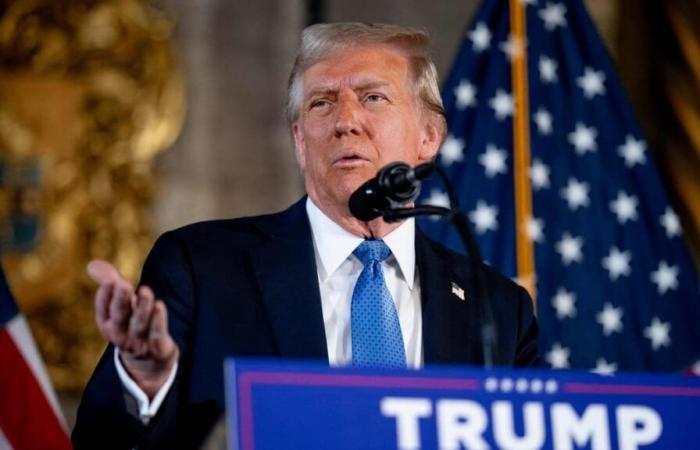
The Georgia State Court of Appeals on Thursday ordered the dismissal of the prosecutor who is prosecuting Donald Trump and 14 co-defendants for illegal attempts to overturn the results of the 2020 presidential election, but refused to dismiss the proceedings .
The judge in this trial, Scott McAfee, had rejected in March the request for dismissal from the prosecutor, Fani Willis, due to an intimate relationship with an investigator she had hired in this case, but demanded a reorganization of his team.
Judge McAfee concluded that there was insufficient evidence of a “conflict of interest”. But, pointing to “an appearance of inappropriate behavior” and denouncing a “tremendous lack of judgment”, he demanded the withdrawal of the file, either from Fani Willis and his team, or from the investigator, Nathan Wade. The latter then resigned.
The court of appeal, by a decision of two judges to one, ruled against the judge on the option chosen, considering that it was “one of the rare cases in which a relinquishment is required and where no other solution will not be enough to restore public confidence in the integrity of this procedure.
The court of appeal affirms, on the other hand, that the facts do not justify “the extreme sanction that the annulment of the indictment would represent” as requested by the accused.
Following the election of Donald Trump on November 5, his lawyer in this case, Steven Sadow, presented a new appeal on December 4, asking the State Court of Appeal to examine itself “well before the ‘inauguration of President Trump’ on January 20 on its jurisdictional competence.
He invited her to declare the Georgia justice system incompetent to judge the man who “is now the president-elect and soon the 47th president of the United States,” invoking the decisions taken in the two federal criminal proceedings against him.
Special prosecutor Jack Smith recommended and obtained at the end of November a halt to federal proceedings against Donald Trump for illegal attempts to overturn the results of the 2020 election, and for withholding classified documents after his departure from the White House.
After consultations, the Department of Justice concluded that its policy since the Watergate scandal in 1973, consisting of not prosecuting a sitting president, “applies to this unprecedented situation,” explained Jack Smith.
Of the four criminal proceedings against Donald Trump, a trial was held in only one, in New York for concealed payments of $130,000 to porn actress Stormy Daniels.
He was convicted on May 30 in this case of “aggravated accounting falsification to conceal a conspiracy to pervert the 2016 election,” but his sentencing has been postponed several times.





